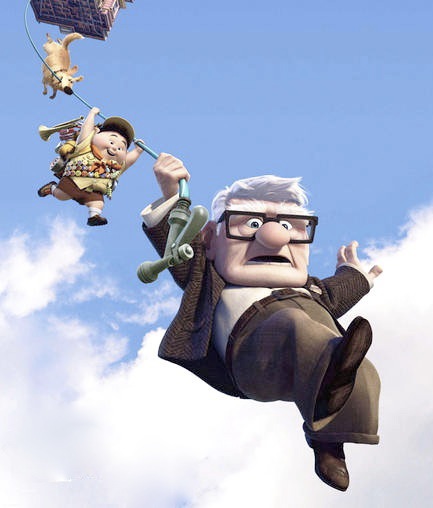Revised, updated 6/25.
In a stunning surprise, the number of Best Picture nominees was increased from five to ten Wednesday by the Motion Picture Academy.
“The Academy is returning to some of its earlier roots, when a wider field competed for the top award of the year,” said Sid Ganis, outgoing Academy president. In 1934 and 1935 there were 12 nominees, and from 1935 to 1943 there were 10.
The announcement, which came without advance rumor, was greeted with questions, criticism, and some praise. It raises the obvious questions: Will the annual Oscar telecast now routinely run even longer than four hours?
“The whole awards format has been undergoing some energetic rethinking for about three years,” Bruce Davis, executive director of the Academy, told me Wednesday, “but the possibility of expanding the best Picture slate began to be discussed seriously in the two regular ‘breakdown’ meetings following this February’s broadcast. In particular the show’s producers, Larry Mark and Bill Condon, expressed a regret that the BP nominations couldn’t provide a better indication of the whole range of a year’s best work.
“Since we don’t do a special “showcase” of each BP nominee on the broadcast anymore, we don’t think the change will add much at all to the show’s running time.”
I asked about the surprising absence of advance rumors. “We’re as mystified as you are. We always ask that discussions of new ideas be kept confidential, but there’s almost always a leak. This time –no leak. Amazing.”
One who didn’t get a leak was Nikki Finke, the widely-read blogger whose inside sources are among the best in the industry. “This is the direct result of intense lobbying by the major studios,” she wrote, charging: “It’s no secret that the studios have grown increasingly frustrated that their mainstream fare –the four-quadrant films, the family-oriented toons, the superhero actioners, and the high-octane thrillers–have not been able to garner enough Best Picture nods in recent years while the art house offerings of the rapidly dwindling specialty divisions and indie prods dominate the process. That, in turn, has hurt the Oscar broadcast ratings as little-seen and often little-known films compete with one another while blockbuster hits are left out of the Academy Awards show.”
Disagreeing with Finke’s view was a well-placed industry insider (not Davis) who told me: “Finke’s just going for the most incendiary explanation (honestly, do you really think studios have been lobbying the Academy to increase the number of best picture slots? I doubt the idea even occurred to them). The change is the result of an intense effort on the Academy’s part to keep the ceremony relevant. That began with a mandate to Bill Condon and Larry Mark, who produced this year’s telecast, making many significant changes in the process (throwing out the musical numbers, altering the order of the awards, rethinking the style of host for the ceremony).
“After the show, Condon and Mark participated in the customary postmortem, where the Academy eagerly received suggestions for a more populist show, including broadening the best picture category (it’s not a direct response to the fact that “The Dark Knight” was snubbed, but there’s no question that last year’s final five alienated a huge segment of the viewing public, and the broadcast is up for renewal soon with ABC, so there’s a ratings component at work here, too).”
Oddly enough, the result of the change may not be more mainstream nominees. As the number of Academy voters has grown, they have been increasingly willing to step outside the mainstream. This would mean a highly-regarded hit like “The Dark Knight” would almost certainly be nominated, but the new “Transformers” film, which could become this year’s biggest blockbuster, would have no chance even if the category grew to 20 films. Taste does remain a factor.
There will be one obvious beneficiary: The trade papers, which get pages of Oscar advertising every year. “This will be a critical — perhaps business-saving — moment for Variety,” wrote David Poland of the influential MovieCityNews.com. He added: “I’m not crying, as a businessman, either.”
What will be the consequences for the annual Oscarcast? I asked Marsha Jordan, for 25 years the producer of Oscar coverage for ABC7/ Chicago. “It’s great to have extra movies in play,” she said, “but the competition just increases with less chance to win. The one thing the Golden Globes do well is separating genres, so that comedies and musicals have a chance. Take a year like 1994. ‘Schindler’s List‘ won the Globes for best drama. ‘Mrs. Doubtfire‘ won for Comedy or Musical. How do you put them up against each other? That’s also a long list at the end of a long show, with the finale still being a couple of geeky producers center stage.”
Thinking it through, I suspect (1) more indie films will be nominated than the Academy expects; but (2) that the larger field will fragment the vote, so that the Best Picture winner will be a major studio picture. But it’s almost always like that anyway. The most visible smaller pictures that won were “Chariots of Fire” (1981), “Annie Hall” (1977) and “Slumdog Millionaire” (2008).
The slumdog may have been the straw that broke the camel’s back. Know what? In a field of ten, I think it would have been the winner. On the other hand, three of the other BP nominees were smaller films: “Frost/Nixon,” “Milk” and “The Reader.” The only big time production that made the cut was “The Curious Case of Benjamin Button.”












